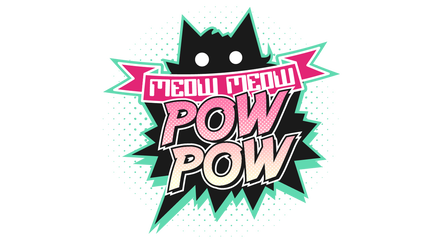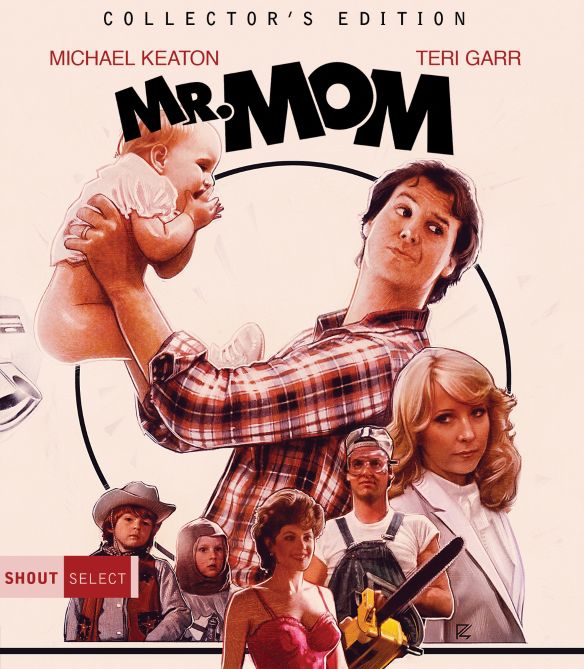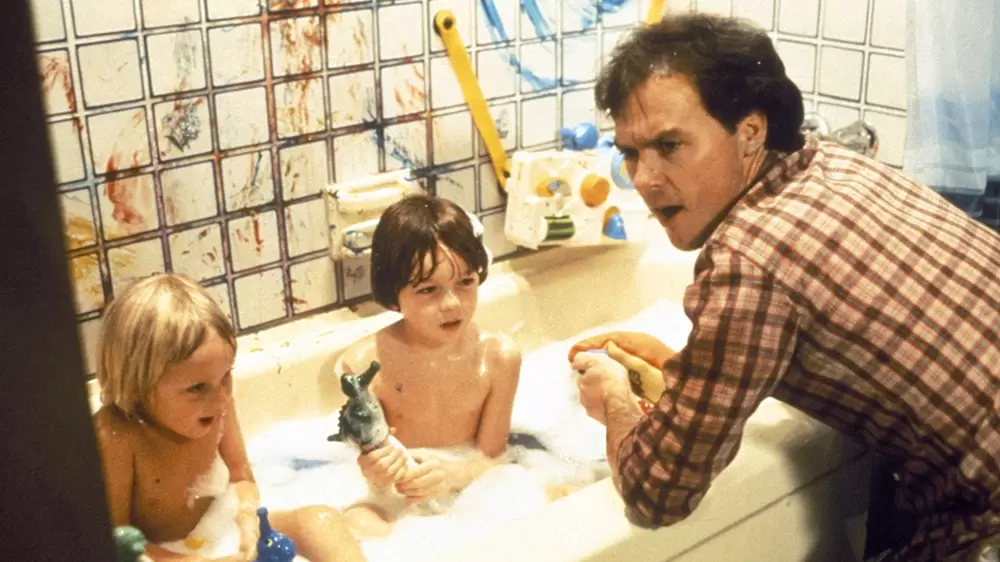Levi RogersI’d just gotten off work early and was driving home when I had the idea. It was a Thursday night, warm and wet. The bar I worked at was dead—a combination of it being Thursday and a record-breaking season of rain hammering the Portland, Oregon streets in early June. I’d stopped for a cocktail and fried chicken sandwich at Basilisk before driving back home to my wife and two daughters (secretly hoping they would be in bed by the time I made it home). It felt like the first moment I had to myself in over two weeks. I was sitting there at the bar, scrolling through my phone, making some notes on writing projects to tackle, when a random idea struck: The idea? I should watch Mr. Mom. I should watch Mr. Mom and write an essay about Mr. Mom as a stay-at-home-dad in the year 2022. For lately, whenever I mentioned to someone that I was a stay-at-home-dad, (or was out and about in public with my two young girls), someone, generally older, would make a comment about me being “Mr. Mom.” “Ah, look at Mr. Mom!” they might say. Or, “You’re a stay-at-home-dad? Mr. Mom huh? Ha!” They would chuckle. I would chuckle. But lately it had begun to bother me. The term felt condescending, pejorative. Yes, I was currently a stay-at-home-dad, but I had also started a coffee roasting company, was a freelance writer, and even had a Master’s degree (albeit in “creative writing” which has never felt like a real Masters degree). Anyways, I’d never seen Mr. Mom, but I somehow knew the film starred Michael Keaton. Right? I looked it up on IMDB. Right. Check. I could guess the plot based on the title. Would it be worth watching? Or so bad it was cringey/laughable? I had to find out, so I decided to rent the movie when I got home. “Want to watch Mr. Mom?!” I excitedly asked my wife when I got home, throwing my rain jacket on the back of a metal dining chair and slipping off my black Bloodstones. “Um…okay? What is that?” I caught her up on my plan, to which she nonverbally agreed by shrugging her shoulders while scrolling through her phone. I poured myself a drink and sat down, my expectations low. I’ve always like Michael Keaton though (I mean, who doesn’t like Michael Keaton?) Mr. Mom came out in 1983 and was Michael Keaton’s second feature film role after Night Shift. I have not seen Night Shift but after reading IMDB’s tagline for the film, I am pretty sure it’s type of sleazy, eighties comedy film would not be made today. Night Film is about *checks notes* a morgue attendant who runs a prostitution ring out of said morgue? Is that right? (I might have to bookmark that for the next essay.) Anyways, directed by Stan Dragoti and written by John Hughes (the most prolific writer, director, and overall vibe setter for films of the eighties--Sixteen Candles, Ferries Bueller’s Day Off, The Breakfast Club, Uncle Buck, Home Alone, Planes, Trains, and Automobiles, etc.) Mr. Mom stars Michael Keaton as Jack Butler, an upper management employee at an auto manufacturing plant in Detroit. The film also stars Teri Garr as Keaton’s wife Caroline Butler, and a young Jeffrey Tambor and Christopher Lloyd as Keaton’s soon to be ex-coworkers. Keaton soon loses his job in the automotive industry and both him and his wife apply for work. His wife lands a job first, however, at a Mad-Men-esque-ad-agency. It’s a boys club made up of men trying to sell products to housewives. It’s misogynistic and smoke-filled and belittling to Caroline. She soon proves herself though (in the first meeting!) by educating the men on how to appeal to housewives. The head of the company takes an interest in her and starts taking her everywhere and driving her to work (totally normal eighties behavior, right?) Jack throws himself into the stay-at-home role, despite his comical ineptitude at first. The way Jack moves through the supermarket it would appear he has never stepped foot inside one. Perhaps men really didn’t shop for groceries in the eighties? More hijinx ensue. With vacuums, cooking, bath time, etc. Jack is soon watching daytime soap operas. Playing poker with coupons with the other stay-at-home-moms. This is a fish out of water story, made funny by the defamiliarization of a man, yes a man! taking care of his kids and staying home with them. Still, Jack is no sitcom slacker Dad. He might do things his own way—as all stay-at-home-parents should—but there doesn’t seem to be any begrudging resentment of him staying home as you might expect from such a film—although it is admittedly, a slapstick, lighthearted comedy not interested in going too deep beneath the surface of the characters psychology. What I found particularly interesting was the way in which Jack occasionally feels the need to prove his “manliness” (especially to his wife’s boss who has taken an interest in her). In one scene, Jack enters the house with a chainsaw (who knows why) and offers the boss a beer. Boss to Jack: “It’s eight o’clock in the morning.” Jack: “Scotch?” The need to prove oneself as still masculine is especially true for the stay-at-home-dad, a role that has historically been “feminine.” For years, decades even, the domestic labor of the stay-at-home-parent (one that is still predominantly made up of women) has been under-appreciated, overlooked, and taken for granted by society. Mr. Mom is also a movie about the dynamics between partners—the working parent vs. the stay-at-home-parent, the inherent tension between two parties trying to raise children and have a career. Jack wants Caroline at home more. Caroline likes her job, but the hours are long and the demands stressful. One evening, Jack cooks Caroline a big meal only to come home late while he ends up asleep on the couch. Eventually, they find a balance that works and soon Jack is re-hired at his company and Caroline keeps her job. It’s a happy ending all around with some life lessons learned along the way. The pandemic has recently brought some clarity to just how essential childcare is to a functioning society. When daycares closed—forcing parents to scramble to find childcare or need flexibility from their employers to work remotely and stay at home—we found out just how much we took childcare for granted. If parents must stay home with their kids, they can’t work either. Now two-three people are out of a job—the childcare workers, the parents, and the owners of the childcare. A ripple effect that continues to spread. It’s almost as if what society wants from parents is not more children, but productivity from the parents and more little workers for when they die. Now, this might be an obvious statement, but I believe the decision to have kids is a personal choice. No one should be forced to have a child, and no one should be forced to apologize for not having one. I know that single people might not love the idea of having to support other people’s children and complain about child tax breaks and so on, but really this is the bare minimum our government in the United States seems to do for children. The cost of childcare is already almost prohibitively expensive for parents, while childcare centers themselves are barely making a profit and child carers often make little enough to keep them there. And that’s if you can even find a childcare center. The waitlist here in Portland for a daycare you feel good about sending your kids to is 6 months to two years. Society wants people to have kids, but they don’t want to feed or cloth or educate them. (I have a lot of thoughts and rage about this but I don’t want to lapse into a monologue that would bore you). In this regard, as Jack and Caroline deal with an economic downturn of the auto industry in Detroit, it’s not too dissimilar from the pandemic and subsequent loss of jobs we found ourselves in in 2020. Add an increase of stay-at-home-dads to the mix and Mr. Mom is probably more relevant than at any other time. Has society changed much since Mr. Mom came out? Of course. There are more stay-at-home-dads than ever before and more women in the workplace. Still, equality and pay in the workplace is still lacking for women as is the normalization of the stay-at-home role for fathers. I think Mr. Mom needs a reboot. Mr. Mom 2? Mr. Mom 2(022)? Or something. That could be an interesting movie … I’ll have to ask my movie making cousin in L.A. if that’s an interesting idea. So, does the movie hold up? More or less. It’s pretty funny, decently well-written and acted, but it’s not classic or timeless in the same way that many other John Hughes or Michael Keaton movies are. Still, I will take it as less of a dig next time someone calls me Mr. Mom. I might even take it as a compliment.
Comments are closed.
|
AuthorOur fabulous blog team Archives
June 2024
CategoriesAll 12 Songs Art Art And Athletes Book Review Chorus Blog Date This Book Game Of Narratives Guest Blog Letter From The Editor Lifehacks Movies Of 2019 Music Pup Sounds Smackdown Strive For 55 Summer Playlists |





 RSS Feed
RSS Feed